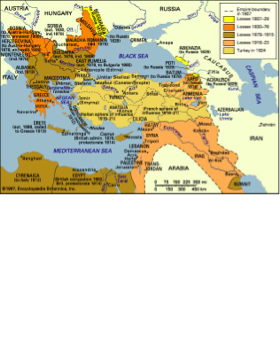Sign up for FlowVella
Sign up with FacebookAlready have an account? Sign in now
By registering you are agreeing to our
Terms of Service
Loading Flow





1. The Janissaries were elite infantry units that formed the Ottoman Sultan's household troops and bodyguards. They began as an elite corps of slaves recruited from young Christian boys, and became famed for internal cohesion cemented by strict discipline and order.
2. Suleiman led Ottoman armies in conquering the Christian strongholds of Belgrade, Rhodes, as well as most of Hungary. At the climax of his expanding empire, Suleiman instituted major legislative changes relating to society, education, taxation, and criminal law. His canonical law fixed the form of the empire for centuries after his death. He basically led ruled by conquering places and leading his people well.
3. Twelver Shi'a Islam or Imamiyyah is the largest branch of Shi'a Islam. The term Twelver refers to its adherents' belief in twelve divinely ordained leaders, known as the Twelve Imams, and their belief that the Mahdi will be the returned Twelfth Imam who disappeared and is believed by Twelvers to be in occultation.
4. The Battle of Chaldiran was important because it was the first battle between the Ottoman and Safavid Empire’s armies. The battle should that the Ottoman were superior over the Safavids. The battle also included new weapons, that were more effective than the previous weapons. Although the battle was a step in a new direction, the outcome at Chaldiran also had many consequences. One being was that it established the border between the two empires, which is the current day border between Turkey and Iran.
5. In 1523 Zahir al-Din Muhammad suddenly appeared in northern India. Unlike the Ottomans, who sought to be renowned ghazis, or the Safavids, who acted as champions of Shiism, Babur made little pretense to be anything more than an adventurer and soldier of fortune in the manner of his illustrious ancestors. With the aid of gunpowder weapons, including both artillery and firearms, Babur mounted invasions in 1523 and 1525, and he took Delhi in 1526. Ironically, Babur cared little for the land he had conquered. Akbar took personal control of the Mughal government and did not tolerate challenges to his rule. He created a centralized administrative structure with ministries regulating the various provinces of the empire. His military campaigns consolidated Mughal power in Gujarat and Bengal. He also began to absorb the recently defeated Hindu kingdom of Vijayanagar, thus laying the foundation for later Mughal expansion in southern India.
Info